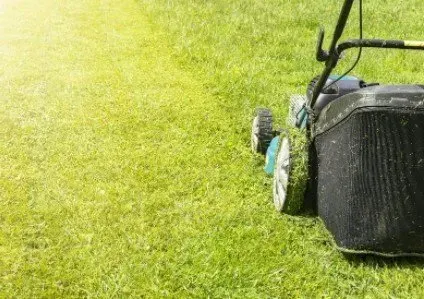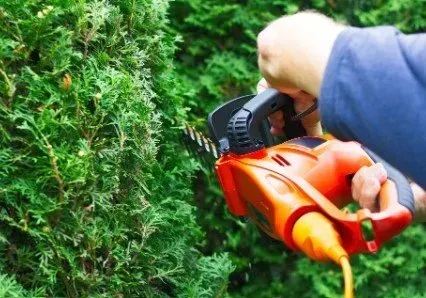Welcome to Lawn Care Greenville
Lawn Mowing Service in Greenville, SC
Greenville Lawn Care
Keeping a well manicured lawn is one of the best ways to increase the curb appeal of a home. But what homeowner has time for proper lawn care? Tired of monotonous lawn mowing, neverending weeding, landscaping, gardening, grass edging, and so on? If you live in Greenville, South Carolina or surrounding areas and have ever wondered, “how can I find a lawn service near me?” or “who are the best landscaping companies near me?” then look no further; you have come to the right place!
Shopping for lawn care services can be exhausting and frustrating. How can you trust one landscaper out of all of the many landscaping companies? We take the guesswork out of your search and connect you with only the best lawn mowing service and beautiful landscaping services to enhance the overall look of your home’s exterior.
Request a FREE Quote
Lawn Care Services near Greenville

And More!
We'll do all the yard work...
so you don't have to!
We understand that lawn maintenance and landscaping are time consuming tasks that require not only a great deal of time, effort, and patience, but also a lot of training, specialized knowledge, tools, equipment, and products that the average person simply does not have. Let’s be real, you would rather spend your weekend with your family, doing something fun, than mowing the lawn, right? Greenville Lawn Care is here for you!
So whether you’re looking for help with your front yard landscaping or want to compliment your backyard design with excellent lawn care, we provide the lawn service and landscaping service you’re looking for. Everything from grass cutting and front of house landscaping, to edging for flower beds and landscaping borders, we will handle all of your lawn maintenance needs.

Let us care for your lawn!
Call us at 864-387-1389 or contact us for your free quote.

We understand that for most homeowners, their house is their most valuable asset. Smart investing in your home is a smart financial move. This includes maintaining all aspects of the house, inside and out, even the lawn.
Proper lawn maintenance can have a huge impact on the value of your home. Did you know that a well maintained yard can increase a home’s value by up to 15%? That’s huge! Taking small, simple steps now to ensure a healthy lawn can really pay off when you are ready to put your house on the market. Not planning on selling your home anytime soon?
Even still, it can’t hurt to increase the value of your home and be one of the best looking houses on the street! Pulling into your driveway and looking over a weed-ridden, brown yard with dirt patches is not very welcoming, nor does it inspire feelings of pride and confidence. It can even cause stress and anxiety, especially at the end of a long day at the office, it can add feelings of inadequacy that can be overwhelming. On the other hand, rolling up to your home as you smile at your thick, lush green lawn brings joy and pride to any homeowner. It inspires a feeling of confidence that you have things under control, as represented by your healthy yard.
So you’re committed to investing in your home. But be sure to be smart about your lawn care investments. Many people assume they can save money by doing the work themselves. However, unless you are a landscaping pro, you will likely waste a great deal of fertilizers and chemicals just through trial and error as you try to learn how to care for your lawn. Then there is the equipment to consider. Buying a lawn mower just to service one yard is not the most cost effective approach, but a lawn care expert uses a single mower to service for dozens of lawns, which helps distribute the cost of the equipment among multiple homeowners.
And the best part? You don’t need to be a landscaping architect or a garden designer to have that feeling of pride for your lawn maintenance. Maybe you don’t have the time or simply don’t want to mow the lawn; that’s fine, you can actually get a relatively cheap lawn mowing service to do it for you! So if trimming grass, lawn fertilization, and landscaping edging are not your strengths, or you just don’t want to deal with them, let us use our years of experience and landscaping design expertise to make your home more beautiful with our professional lawn mowing and care services. No need to wonder anymore “how can I find a lawn mowing service near me?” or “who provides the best lawn maintenance near me?” or even “who does the cheapest lawn mowing near me?” Just give us a call today and we’ll get you a free, no obligation quote!
Why Choose Lawn Care Greenville
Expertise and Experience
With years of experience in the lawn care industry, Lawn Care Greenville has developed a wealth of knowledge and expertise. Our team of skilled professionals is trained in the latest techniques and best practices, ensuring that your lawn receives the highest level of care and attention. Whether it's routine maintenance, specialized treatments, or landscaping enhancements, you can trust us to deliver outstanding results every time. Our commitment to excellence is unwavering, and we continuously strive to exceed your expectations.
Comprehensive Services
At Lawn Care Greenville, we offer a comprehensive range of lawn care services to meet the diverse needs of our clients. From lawn maintenance and fertilization to pest control and irrigation system installation, we have the tools and expertise to handle it all. Our goal is to provide a one-stop solution for all your lawn care needs, saving you time and hassle while ensuring that your lawn remains healthy and vibrant year-round. With a focus on quality and customer satisfaction, we strive to exceed expectations with every service we provide.
Customized Approach
We understand that every lawn is unique, which is why we take a customized approach to lawn care. Our team works closely with each client to assess their specific needs and preferences, developing personalized treatment plans tailored to achieve their desired results. Whether you have a small residential lawn or a large commercial property, we have the flexibility to adapt our services to meet your individual requirements. Our commitment to personalized service ensures that your lawn receives the attention it deserves, resulting in healthy and vibrant greenery that enhances the beauty of your property.
Quality Products and Equipment
At Lawn Care Greenville, we believe in using only the highest quality products and state-of-the-art equipment to ensure the health and beauty of your lawn. From premium fertilizers and weed control products to advanced irrigation systems and landscaping tools, we invest in top-notch materials that deliver superior results. By choosing us as your lawn care provider, you can rest assured that your property is in good hands. Our commitment to excellence extends to every aspect of our service, ensuring that your lawn receives the care it deserves for long-lasting health and vitality.
Exceptional Customer Service
Customer satisfaction is our top priority at Lawn Care Greenville. From the moment you contact us, you can expect friendly and professional service from our dedicated team. We take the time to listen to your concerns, answer your questions, and address any issues that may arise. Our goal is to exceed your expectations at every step of the process, leaving you completely satisfied with the results. Your feedback is invaluable to us, and we continuously strive to improve and enhance our services based on your input. Additionally, we value open communication and transparency, keeping you informed throughout the entire lawn care process to ensure your peace of mind.
Affordability and Transparency
We understand that budget considerations are important when it comes to lawn care services. That's why we strive to offer competitive pricing and transparent quotes, with no hidden fees or surprises. Our goal is to provide high-quality service at affordable rates, making it easy for our clients to maintain a beautiful and healthy lawn without breaking the bank. With Lawn Care Greenville, you can enjoy peace of mind knowing that you're getting great value for your money. Our commitment to affordability extends to every aspect of our service, ensuring that quality lawn care remains accessible to all.
Best Yard Care Service in Greenville
We take great pride in providing you with lawn service that is a cut above the rest (pun intended!) Don’t waste another Saturday struggling with cutting the grass or weeding the yard. Call us today and you’ll be on your way to a more beautiful home and stress free weekend using the professional services of Greenville Lawn Care and Maintenance.

Lawn Care Questions?
Frequently Asked Questions
How can I take care of my lawn myself?
It's a wonderful feeling to care for your first lawn. This is the moment you've been working towards, and now it's your turn to care for your first lawn. You can make your backyard lush and thick by learning how to maintain your lawn. These lawn care basics will help you take on each task one at a time. Here are some tips and tricks to help you get started.
• Get to Know Your Soil
• Fix Underlying Issues
• Know the Best Grasses for Your Region
• Seed Right the First Time
• Feed Your Grasses Well
• Fight Lawn Weeds
• Mow for Height and Health
• Manage Water Wisely
• Boost Your Lawn
What happens if you don't cut grass?
Unsightly Appearance
The grass can go to seed if it is left untended for too long, making the blades look more like weeds. Excessively tall grass can lead to complaints and lower curb appeal. Many cities require that homeowners keep their lawns mowed.
How often should I mow my lawn?
How often should the lawn be mowed
A schedule will help your grass stay green and healthy. Mow your lawn more often during the growing season. The average time to mow is approximately once per week depending on the grass type. The growing season for cool season grass is spring and autumn.
Is it okay to keep grass clippings on the lawn?
It's not a good idea to leave the grass clippings if you let your lawn grow excessively, or if the grass clippings have been left in long clumps. Otherwise, they can be a great source of nutrients for your lawn. The best way to save fertilizer costs is to leave clippings. This will prevent groundwater and surface water contamination.
Professional Lawn Care Service in Greenville, SC
Contact
Greenville, SC, United States





